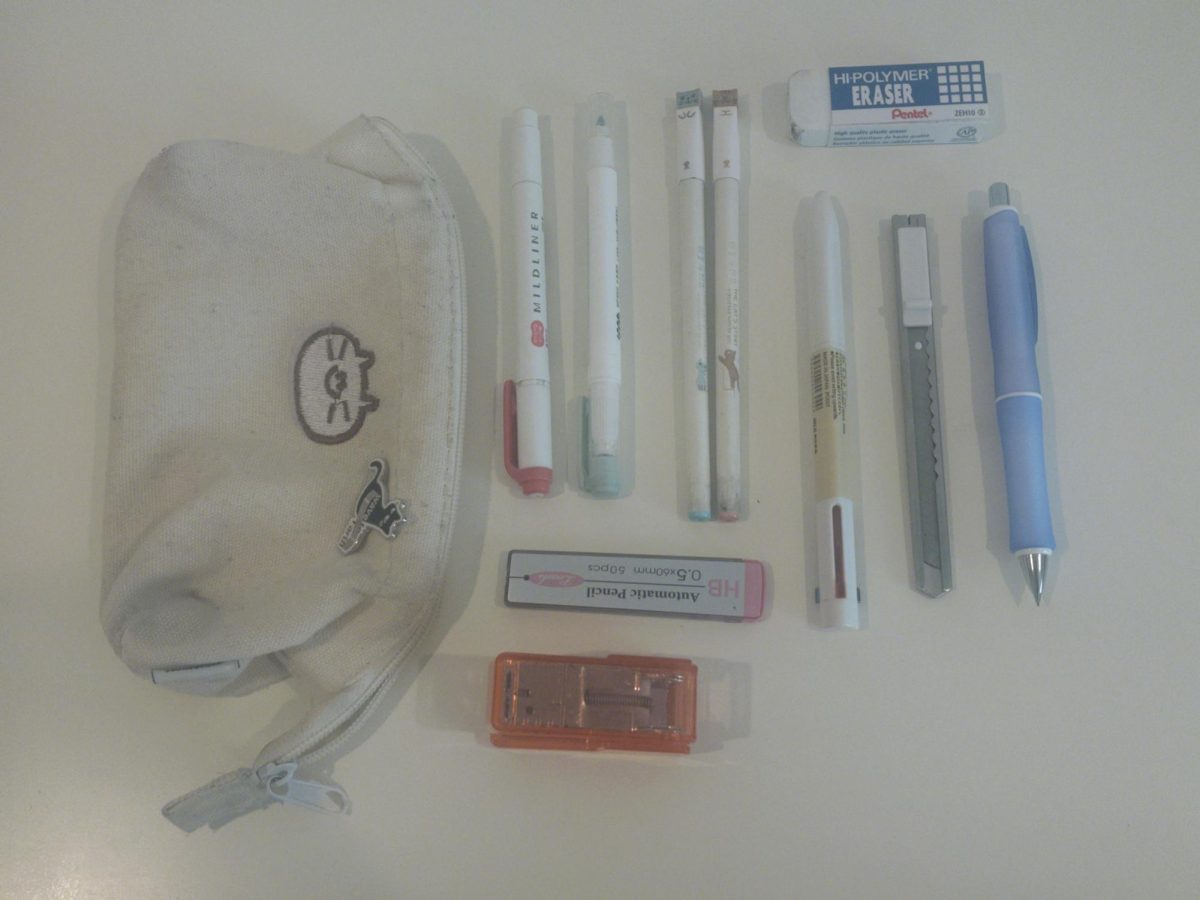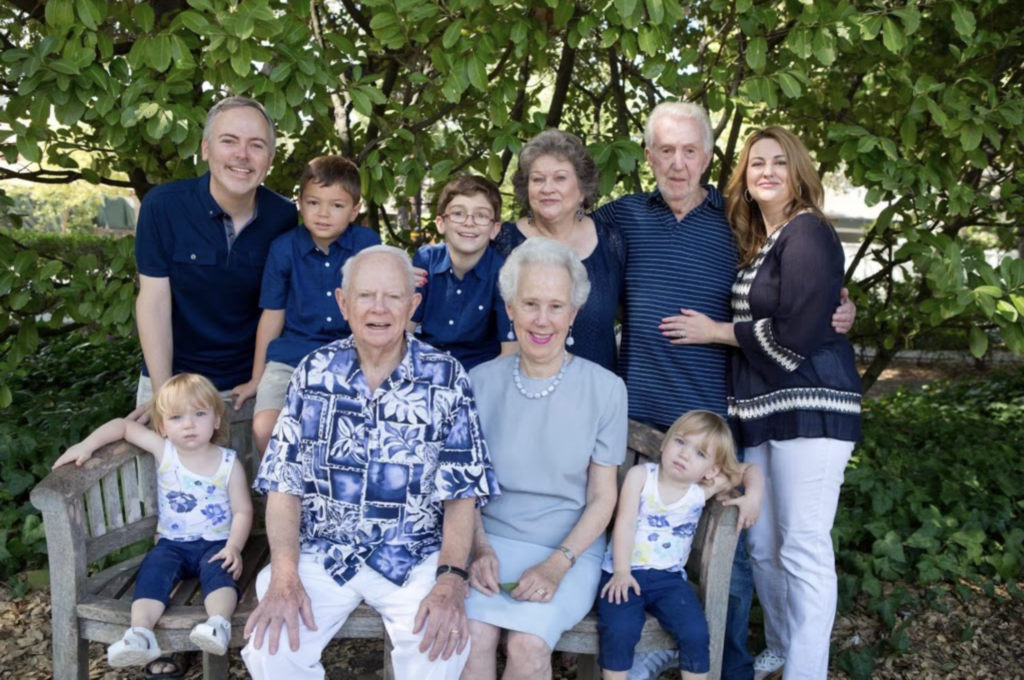As I gaze across the long wooden table in my family’s dining room, my parents can’t help but smile, seeing my entire family gathered together in one location. When my grandparents on my father’s side fly in from New Jersey for their annual visit, we celebrate with large quantities of food.
My Nana’s scrumptious breaded chicken combined with my mother’s cooked vegetables makes for a delicious evening. As we dig in, my grandfather — better known as Poppop by my family — politely asks for his nightly glass of wine, a tradition he’s practiced for over 60 years.
If my paternal grandparents aren’t singing heartfelt duets from incredibly old musicals, they’re taking turns reciting horrible jokes from memory. Regardless of the conversation, they always seem to be equipped with a joke or pun to suit the occasion. Imagine a terrible dad joke, but amplified because it’s your dad’s dad; that’s the type of comedy that graces the dinner table.
A few years ago, as each of us went around speaking about our day, my father, a man who devotes incredible amounts of time to keeping up with politics, mentioned that he thought Donald Trump was unfit to be president. My jaw immediately dropped in realization of the mistake he had just made. The equivalent of a civil war in the Zinman house had erupted. You see, Poppop is a full-fledged Trump-loving Republican.
From his bright red “Make America Great Again” cap to his treasured letter from Antonin Scalia — a former conservative judge on the Supreme Court — he is open about his right-wing beliefs.
In this age of political polarization in the American public, which has grown in the past 7 years, it’s essential, now more than ever, to appreciate the remarkable beauty of disagreement. Though it may seem unusual to ponder the joy certain arguments can bring, it’s a great way to appreciate diverse perspectives around the world.
Whether my father meant to or not, he had fired metaphorical shots across my grandfather’s bow, and Poppop felt compelled to respond.
As a former bankruptcy lawyer and professor, my grandfather often views political disagreements from a very technical perspective. To my grandfather, Trump’s policies financially benefited not only him but the entire country. Ergo, Trump deserved his vote.
As their disagreements escalated, I feared the peace at the dinner table was disappearing quickly.
Aggressively trying to strike down each other’s perspectives, they countered one another with no room to breathe in between sentences. They bounced back and forth, throwing rhetorical jabs, neither landing a knockout blow.
Though my family’s partisan bouts may sound hostile at times, their disagreements are never really mean-spirited. That night when my family discussed Trump, I looked closely at my father and grandfather’s faces and noticed slight smirks. I slowly realized that my father and Poppop treasure these exciting moments of conflict.
As they discuss and debate each other’s political beliefs, in a strange way, they grow closer. Their disagreements force their perspectives and personalities to clash, urging them to recognize their opposing viewpoints and understand each other on a deeper level. I’ve found that discussing opposing viewpoints with others — like my father and Poppop — can sometimes lead to heightened understanding and empathy: Instead of engaging in political conversations with a mindset of trying to “win,” trying to understand the other side better can lessen the effects of polarization.
My dad often asks his father, “How could you possibly believe what you’re saying? It’s nuts,” prompting my grandfather to simply roll his eyes.
After eyeing these miniscule details in their disagreement, I can’t help but smile, mostly because I see a lot of myself in them. Growing up in a household in which these types of debates are encouraged and enjoyed, I have developed into a passionate, argumentative person.
Even my Poppop points out that the goal of every political debate should be to compromise, telling me: “Our nation grew from the concept of compromise and finding new solutions to various problems.”
When we engage in tense political discussion with the sole purpose of winning the argument, people lose sight of what the conversation should be about — understanding.
Rather than attempting to degrade the beliefs of others, Americans, even in this time of extremes, should aim to grasp the differing political viewpoint, for the best way to truly make an impact on another person is through understanding, as my father has told me. If believers of the two opposing sides to an argument strive to understand the details of the other point of view along with reasons for holding the particular belief, a change of heart becomes far more likely.
When I brought up my observations with them, my grandfather and my father both said that their personal relationship with one another had not been affected by their opposing political views.
“I think our differing views represent a microcosm of the problem in America today,” my father said. “The news outlets people watch or read play a huge role in determining their political beliefs. I think people should learn to receive input from a variety of sources to develop an informed opinion.” My father mainly watches MSNBC and CNN, while my grandfather is a Fox News viewer.
My father and Poppop’s disagreements go to show that relationships don’t have to end because of opposing beliefs; in fact, they can flourish. Though the two bicker about all political matters, they still value and cherish one another. With polar opposite views, my Poppop and my father both agree that politics should not be the reason for hatred within families or groups of friends. Enjoy the disagreement.
“I don’t agree with a thing that comes out of my father’s mouth about politics,” my father said. “But I still love him.”


























